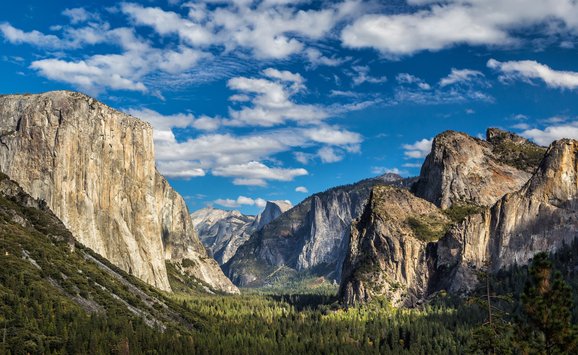“I only went out for a walk and finally concluded to stay out ‘til sundown, for going out, I found, was really going in.”
-John Muir
It sounds a bit touchy-feely, but there is increasing evidence that time spent walking beneath trees, strolling beside a river, or lying in a park pays significant health and psychological dividends. Yet most Americans underestimate the average amount of time they spend indoors and the relative benefits they would experience from spending even brief time outdoors.
On November 13, as part of our 60th Anniversary celebration, RFF hosted economics legend and Nobel Laureate Kenneth Arrow. He spoke about the “anthropocene” - the idea that we are in a new geologic epoch marked by human domination of our planet. Arrow reflected on what has given us this power to make use of more than 40% of the planet’s primary production—communication, identification, learning, collaboration, trade, and war—and what implications our values and (ir)rationality may have for the future. One perhaps uniquely human characteristic that he did not mention was the power of reflection – —evidence that through steady changes in thinking and habits, we can reset our brains.
At the close of the lecture, one audience member asked, “Do you think language, knowledge, and the other abilities that have made humans powerful are adequate to handle the consequences of that power, or do we need new abilities?” This got me thinking. Perhaps rather than looking outside for ingenuity, we first need to look inside.
On average, we now spend more than 90% of our time indoors. In a 2011 study, Elizabeth Nisbet and John Zelenski asked volunteers to project the relative enjoyment of walking along a building corridor versus through a campus green space. Respondents experienced significantly more enjoyment outdoors, to a much greater degree than projected. Even a brief walk outdoors increased the subjects’ subjective connection with nature, strongly linked with environmental concern and sustainable behavior.
Professor Sara Unsworth has studied college youths with little exposure to non-urban environments, surveying how much they valued nature prior to and after a camping trip. Half the students’ trips included a period of meditation. Upon their return, only those who had meditated showed a significant increase in their value of nature. Unsworth suggested asking decisionmakers to meditate briefly on enjoyable experiences in nature before considering environment-related policy, increasing the likelihood they will support the measure.
Time in nature appears to make people healthier, too. Studies of participants in “National Forest Therapy” in Japan, South Korea, and Finland show immediate and lasting medical benefits, including reduced stress levels, heart rate, blood pressure, and sympathetic nerve activity.
There is also evidence of the relative benefits of experiencing nature versus man-made projections and evidence of links between exposure to nature and heightened levels of empathy. Empathy, in turn, has been linked to an increased likelihood of supporting environmental conservation. That’s the kicker: this “nature deficit disorder” isn’t just bad for our minds and bodies. It actually fuels an increased disregard for the water, soils, animals, and air that enable our existence. Our modern social norms and lives of staring at screens all day are bad for our health and happiness and are causing us to completely disconnect from and devalue our life support system.
The final question for Dr. Arrow asked whether Homo sapiens is the right unit of analysis. Arrow smiled and said, “The trouble, of course, is that we are the ones sitting here and talking…the ones whose values we’re discussing.” Over a hundred years ago John Muir, observed, “A numerous class of men are painfully astonished whenever they find anything, living or dead…which they cannot eat or render in some way what they call useful to themselves.” Muir expressed concern that we would become “tired, nerve-shaken, over-civilized people.”
On the other hand, consider “blue zones” - communities that a 2005 National Geographic study identified as supporting the healthiest, longest-living people - towns in Sardinia, Greece, Costa Rica, Japan, and one small Seventh Day Adventist community in California. What did these communities have in common? Outdoor activity without mechanical devices, a sense of purpose, periods of reflection, eating less meat, drinking a glass or two of wine, sake, or ouzo, belonging to a faith-based community, putting family first, and having a social circle that supports healthy behaviors. Reflection in, reorientation towards, and reintegration with nature are just what we - and our larger life support system - need.




